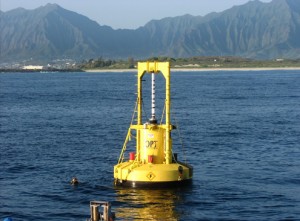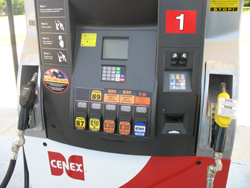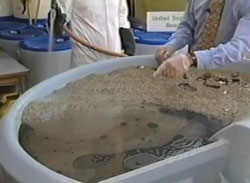 A USDA scientist believes wind and solar power generating systems could be set up to complement each other.
A USDA scientist believes wind and solar power generating systems could be set up to complement each other.
A study by Agricultural Research Service (ARS) agricultural engineer Brian Vick at the agency’s Renewable Energy and Manure Management Research Unit in Bushland, Texas says that by using solar power during doldrum days and wind at night could help offset the two energy sources shortcomings:
Vick discovered that in the Texas Panhandle and West Texas, as well as in northern and southern California, there is almost an exact mismatch between wind power production and peak energy demands over a 24-hour period. In these locations, at the heights of modern wind turbines, winds are lowest at mid-day, when power demands are greatest. In Texas, there is also a seasonal mismatch: The winds are weakest in the summer, when power demands are highest.
But the sun’s rays are most intense at mid-day and in summer months.
Texas is the top state for wind-generated electricity production, with Iowa ranking second and California third. California is the leader in solar-generated electricity production.
The most efficient storage system is one being used in solar thermal power plants, where the sun’s heat is used to heat water or other fluids. The fluids are kept hot long after the sun goes down, ready to be used later to produce steam to generate electricity.
The excess electricity generated by wind in the late night and early morning hours could be pumped into the grid and removed by storage facilities (like pumped-storage hydroelectricity or compressed-air energy storage facilities) to match the utility loading in the daytime.
The article goes on to say that Vick and his colleagues have also been testing wind/biodiesel hybrid systems.











 According to the
According to the 